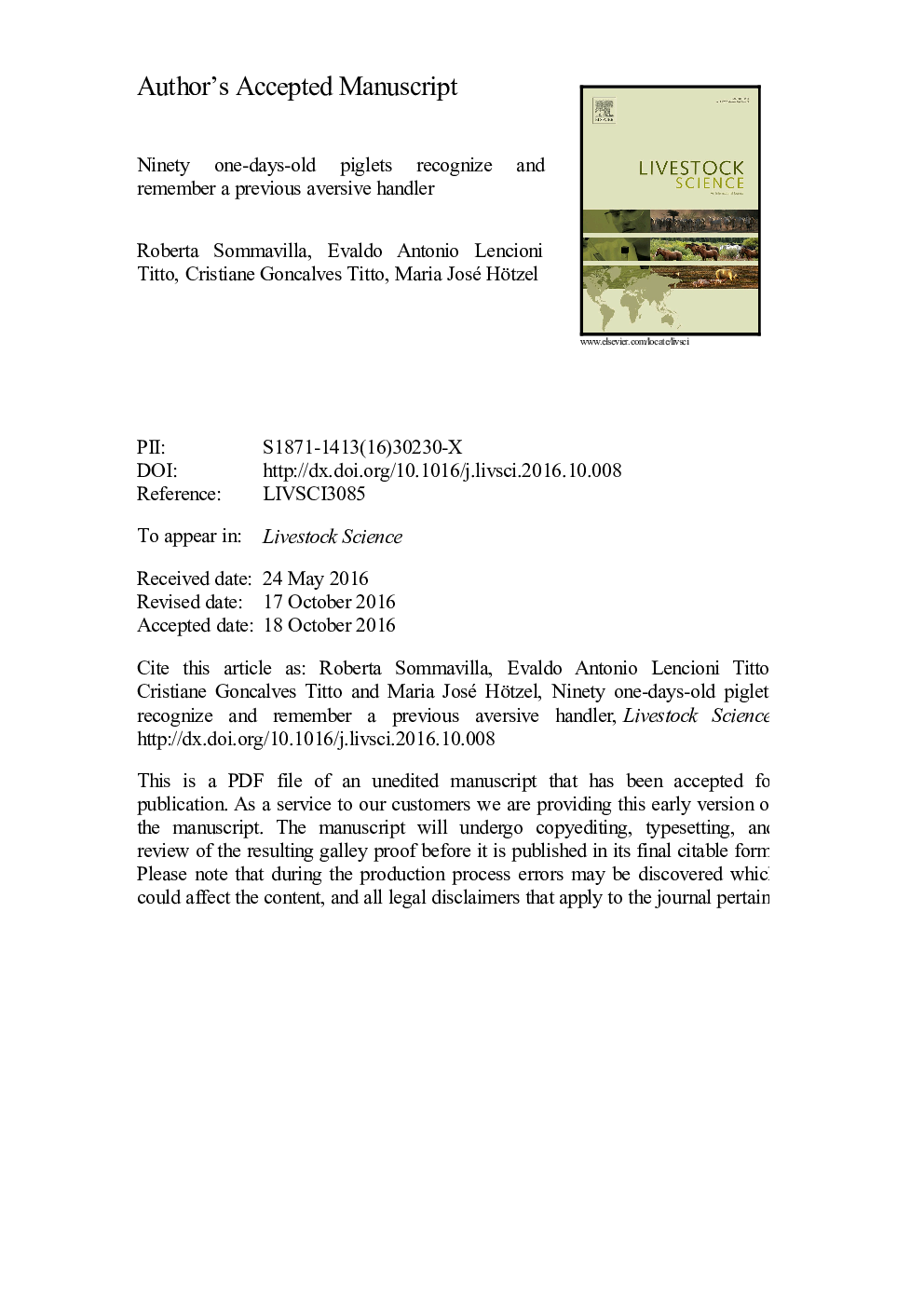| Article ID | Journal | Published Year | Pages | File Type |
|---|---|---|---|---|
| 5543083 | Livestock Science | 2016 | 12 Pages |
Abstract
The aim of this study was to determine if 91 days-old piglets can remember a previous aversive handler after three weeks with no contact with this person. For this, 16 piglets from a group of 48 piglets were submitted to an aversive treatment from birth until 70 days of life, made by a woman wearing orange coveralls (AH). AH was noisy, moved harshly and shouted frequently. After day 70, piglets did not have any further contact with AH. At the same time, a new neutral treatment was introduced made by another person (NH - a woman wearing blue coveralls). NH used a soft tone of voice and was careful. The Human Approach Test was applied to measure the avoidance response of piglets to the approach of AH, NH and an unfamiliar handler (UH), at 35 days and at 91 days after birth. Scores ranged from 1 (experimenter could touch piglets) to 4 (piglets escaped as soon as the experimenter moves). On day 35, piglets kept more distance from AH then from the UH (2.37±0.33 and 1.69±0.22 respectively, P=0.04), indicating that they could recognize the aversive handler. On 91 days, piglets still kept more distance from AH then UH and NH (2.75±0.33; 1.31±0.15; 1.25±0.11 respectively, P<0.001), indicating that aversively treated piglets do not avoid an unfamiliar handler, but can remember an aversive handler with whom they had contact early in life. In conclusion, piglets tested at 35 and 91 days of age show different avoidance responses to different humans, according to the quality of their previous interactions. Moreover, they remember a previous aversive handler after at least three weeks with no contact.
Related Topics
Life Sciences
Agricultural and Biological Sciences
Animal Science and Zoology
Authors
Roberta Sommavilla, Evaldo Antonio Lencioni Titto, Cristiane Goncalves Titto, Maria José Hötzel,
